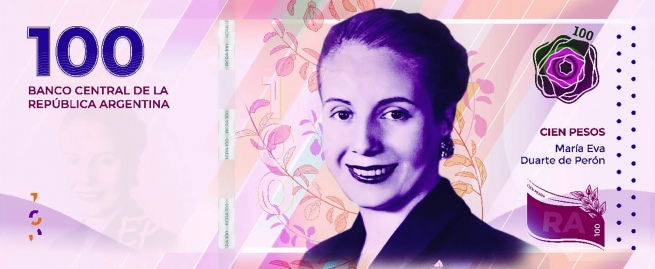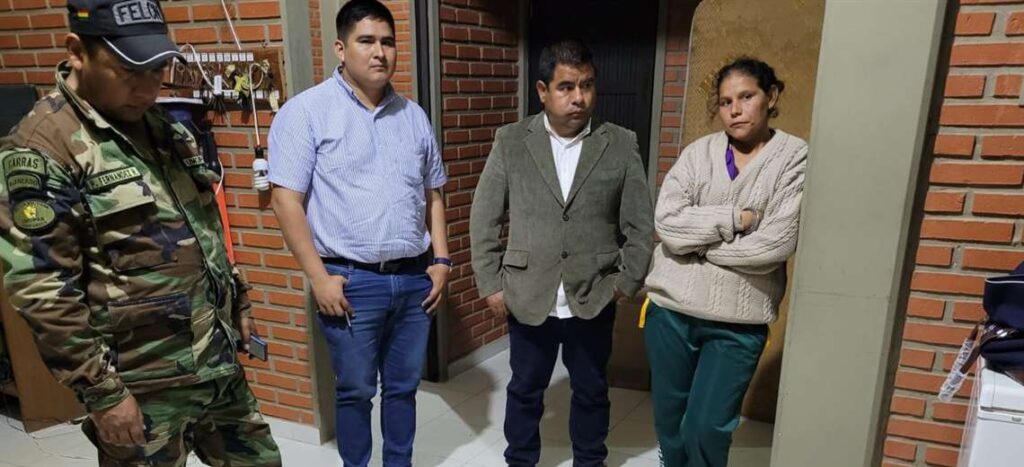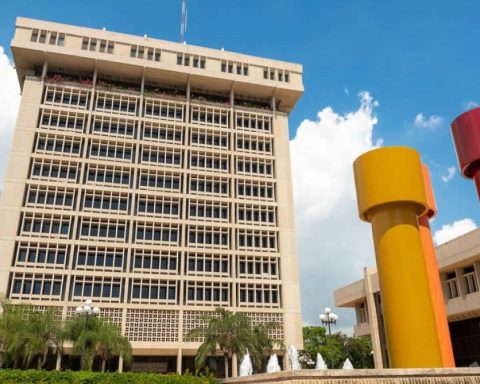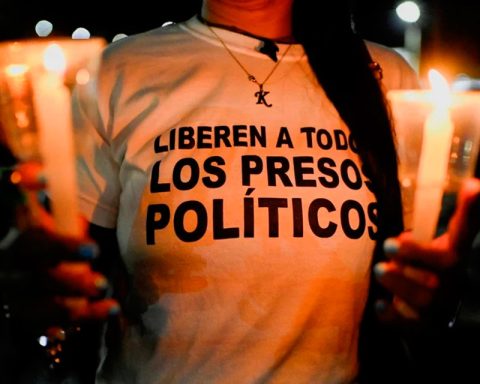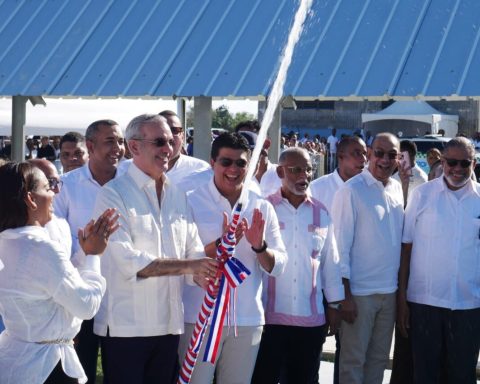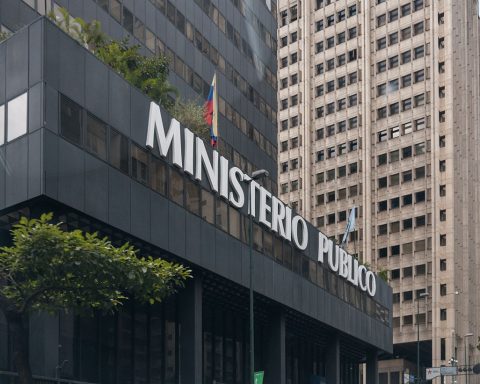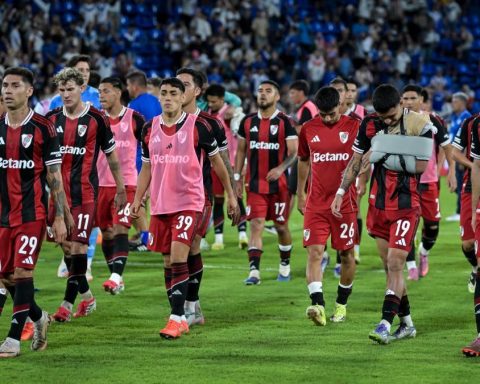The new family of banknotes from the Argentine Republic, which are expected to be in circulation before the end of the year, is made up of four denominations (100, 200, 500 and 1,000 pesos), with the representation of three women and three men, reported the Central Bank (BCRA).
The choice of these important figures for the country’s history is based on their struggle for independence, development, inclusion and the expansion of rights.
As a singular element, two of the denominations pay homage to two personalities on the same banknote. The family will be made up of the following tickets: $100, Maria Eva Duarte de Peron; $200, Martín Miguel de Güemes and Juana Azurduy; $500, Maria Remedios del Valle and Manuel Belgrano; and $1,000, Jose de San Martin.
In addition to the recovery of historical personalities, instead of the native animals imposed in 2016, the new banknotes will again have their reading in horizontal format on both sides, unlike the current ones that are read vertically on their front.
The new banknotes will maintain the color palette for each denomination and they will keep the size of the current banknotes, which will coexist with the current ones in circulation until they are replaced due to poor condition, according to the president of the BCRA, Miguel Pesce.
$100
Maria Eva Duarte de Peron

will continue to appear in the $100 bill. She was the promoter of Law 13,010 on women’s suffrage in 1947 – a cutting-edge rule for the time that established equal political rights between men and women – and is a figure of enormous importance in the fight for the expansion of social and labor rights in the Argentina, as well as an international benchmark.

$200
Martin Miguel de Güemes and Juana Azurduy

will share the $200 bill. They were protagonists of the defense of Argentine sovereignty during the War of Independence.
Guemes He also participated in the Reconquest and Defense of Buenos Aires during the English Invasions of the Viceroyalty of the Río de la Plata, he was Governor of Salta and a great protagonist of the Gaucha War, the fierce resistance that safeguarded the northern territories of the country from numerous royalist advances. that allowed San Martín the organization of the liberating army of the Andes.

Juana Azurduy is recognized with honors by Bolivia and Argentina for having taken up arms in a society that prohibited women’s access to the military, commanded battalions and mobilized thousands of indigenous and mestizo people in favor of the cause of independence, a merit that earned her that Belgrano gave him his sword. She reached the rank of lieutenant colonel and joined the troops of Martín Miguel de Güemes and, in 2009, the Argentine government promoted her post mortem with the rank of general.
$500
Mary Remedies of the Valley

It is one of the figures the $500 bills. Heroine of the War of Independence in her role as auxiliary in the English Invasions and combatant in the Army of the North, she had to face the prejudices and limitations of the time for being a woman and Afro-descendant.
For her bravery, Belgrano appointed her with the rank of captain. She was shot, captured by the royalists and publicly flogged. After years of neglect and misery, her work was recognized and she reached the rank of sergeant major. In her honor, Law 26,852 establishes November 8 as the National Day of Afro-Argentines.
Manuel Belgrano

Creator of the Argentine flag, he is one of the patriots who promoted the May Revolution and one of the greatest heroes of the War of Independence. Will share the $500 bill with Maria Remedios.
Lawyer, journalist, economist, politician, diplomat and, when the war broke out, soldier in charge of the defense of Buenos Aires during the English Invasions, of military expeditions in Paraguay, in the Banda Oriental and the Army of the North.
He also had a prominent role in the Congress of Tucumán that declared Independence, as well as being a determined defender of the importance of the country’s educational, cultural and economic development.
$1,000
Jose de San Martin

The new figure of $1,000 bill. Father of the Nation and leader in the emancipatory struggle of Argentina, Chile and Peru, he is one of the most emblematic and transcendent figures of the Spanish-American wars of independence.
After training as a soldier in Spain, in 1812 he returned to Buenos Aires to put himself at the service of independence. He created the Horse Grenadier Regiment, commanded the Army of the North and was governor of Cuyo.

He devised and executed the continental plan with the aim of eliminating all the royalist nuclei that maintained the colonial system in America and starred in the feat of crossing the Andes mountain range with an army that was decisive in the liberation of Chile and Peru.
